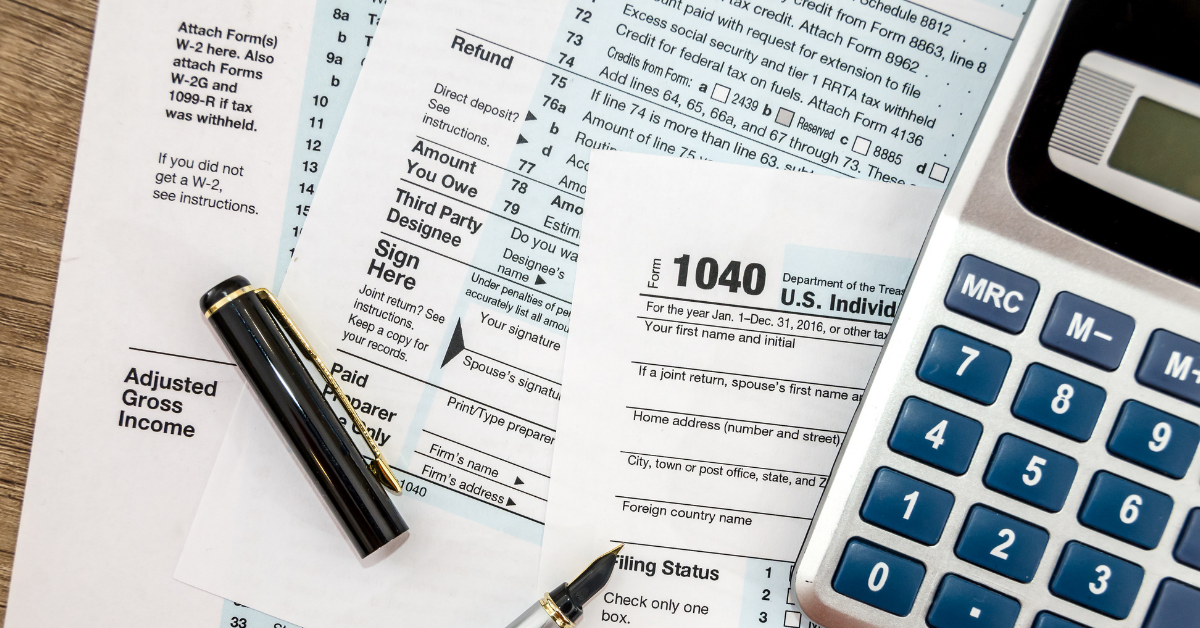FY 2022 Executive Budget Recommendation: Governor Reeves Calls for Elimination of State’s Individual Income Tax
by Kyra Roby
Governor Reeves’ Fiscal Year 2022 Executive Budget Recommendation includes a proposed elimination of the state income tax. The elimination of individual income taxes in Mississippi is a poor policy proposal. In a state with one of the highest poverty rates in the nation at a time when many states across the nation forecast revenue shortfalls due to the coronavirus pandemic, intentional elimination of state revenue is ill-advised. In the midst of an economic recession, our state budget should include policy proposals that promote economic growth, adequately funds the state’s services, and supports economic equality among all of the state’s resident.
Taxes are a significant revenue source for the state. They are one of the main funding sources for the state’s programs and services such as education, healthcare, transportation, and criminal justice. In FY 2019, the state collected $1,898,059,305 in individual income taxes. This amounted to the second-highest tax revenue source for the state or 32.8% of the Mississippi Department of Revenue’s tax revenue.
Mississippi currently has a graduated income tax system with tax rates as follows:
- 0% on the first $2,000 of taxable income,
- 3% on the next $3,000 of taxable income,
- 4% on the next $5,000 of taxable income, and
- 5% on all taxable income over $10,000.
Under Reeves’ recommendation to eliminate the state income tax, the 4% tax rate on taxable income will be eliminated over a five-year period. And the 5% rate on all taxable income above $10,000 will be phased out by 2030. Under the “Taxpayer Pay Raise Act” passed in 2016, the 3% tax rate will be completely phased out in the state by 2022.
Reeves cites the proposed income tax elimination as a “bold move to attract new businesses and residents.” He contends that the income tax elimination will increase take-home pay for Mississippians, provide advantages for small businesses, and create economic growth.
Forty-one states, including Mississippi, and the District of Columbia, have an individual income tax. New Hampshire and Texas―tax investment income derived from interest and dividends, only, as opposed to personal income. And seven states―Alaska, Florida, Nevada, South Dakota, Texas, Washington, and Wyoming―do not levy individual income taxes in their states.
Generally, states without income taxes account for revenue losses with other taxes. The states use this revenue from additional tax sources to pay for the state’s services and programs. As such, while individuals have no income tax to pay to the state, their overall taxes tend to be higher, and the money “saved” from income tax is added to other tax payments. For instance, states without individual income taxes tend to have higher sales, excise, and property tax rates. Tennessee and Washington have two of the nation’s highest average combined local sales tax rates at 9.53% and 9.21%, respectively. Similarly, New Hampshire and Texas have some of the highest property tax rates in the country.
Although Reeves states that the state will not need to increase other taxes to account for lost revenue from eliminating the income tax, he does not indicate where additional revenue sources may originate. States without individual income taxes tend to have existing revenue-producing sources in the state to help make up for revenue shortfalls. For example, Florida and Nevada’s economies benefit from their thriving tourism industries. Alaska, Washington, and Wyoming’s economies benefit from their states’ natural resources, such as revenue from oil, gas, and mineral extractions. On the other hand, South Dakota relies more heavily on federal aid than other states since it generates less revenue per capita than most states due, in part, to the elimination of revenue from individual income taxes. Mississippi does not have a comparable, existing source of revenue.
More significantly, lower-income individuals tend to be left behind from the benefits of income tax elimination. This is because individual income taxes are the most progressive elements of a state’s tax structure, meaning wealthier individuals pay a greater percentage of their income in taxes than middle- and lower-income individuals.
Mississippi’s individual income tax is the only progressive element of the state’s tax system. The state’s individual income tax is the only major tax (compared to the state’s sales, excise, and property taxes) in which the state’s top 20% pay more in taxes than other income groups. According to the Mississippi Department of Revenue, 55% of the state’s total individual income tax is paid by persons making over $100,000 annually. These individuals represent 17% of the state’s total taxpayers. Thirty-six percent of the state’s total taxpayers, or those who have an income level less than $30,000,000, pay just 6.23% of the state’s total individual income tax.
Moreover, a 2017 report by the Institute on Taxation and Economic Policy (ITEP), which compared the economic performances of states without individual income taxes to states with the highest top tax rates, concluded the following: states without individual income taxes experienced slower economic growth, the slower-growing average income for residents, little to no improvement on the economic outcomes of residents despite population growth, and higher tax burdens on the poor than states with the highest tax rates. And the study found that “[w]ithout exception, the lowest state and local tax rates in the nation for high-income taxpayers are confined to the nine states that do not levy personal income taxes.”
If the Legislature takes up reeves’ recommendation, it would be a part of a series of millions of dollars in tax cut proposals made by lawmakers over the years. A more measured approach to ensuring economic stability in the state and improving the economic well-being of all of the state’s residents would be the implementation of a state Earned Income Tax Credit and reformation of the state’s corporate tax code.
Mississippi residents deserve tax policies that work―policies that raise enough revenue to fund the government’s services, increase the state’s economic growth, and reduce poverty. The elimination of income taxes in the state fails to meet these needs.


Leave a Reply